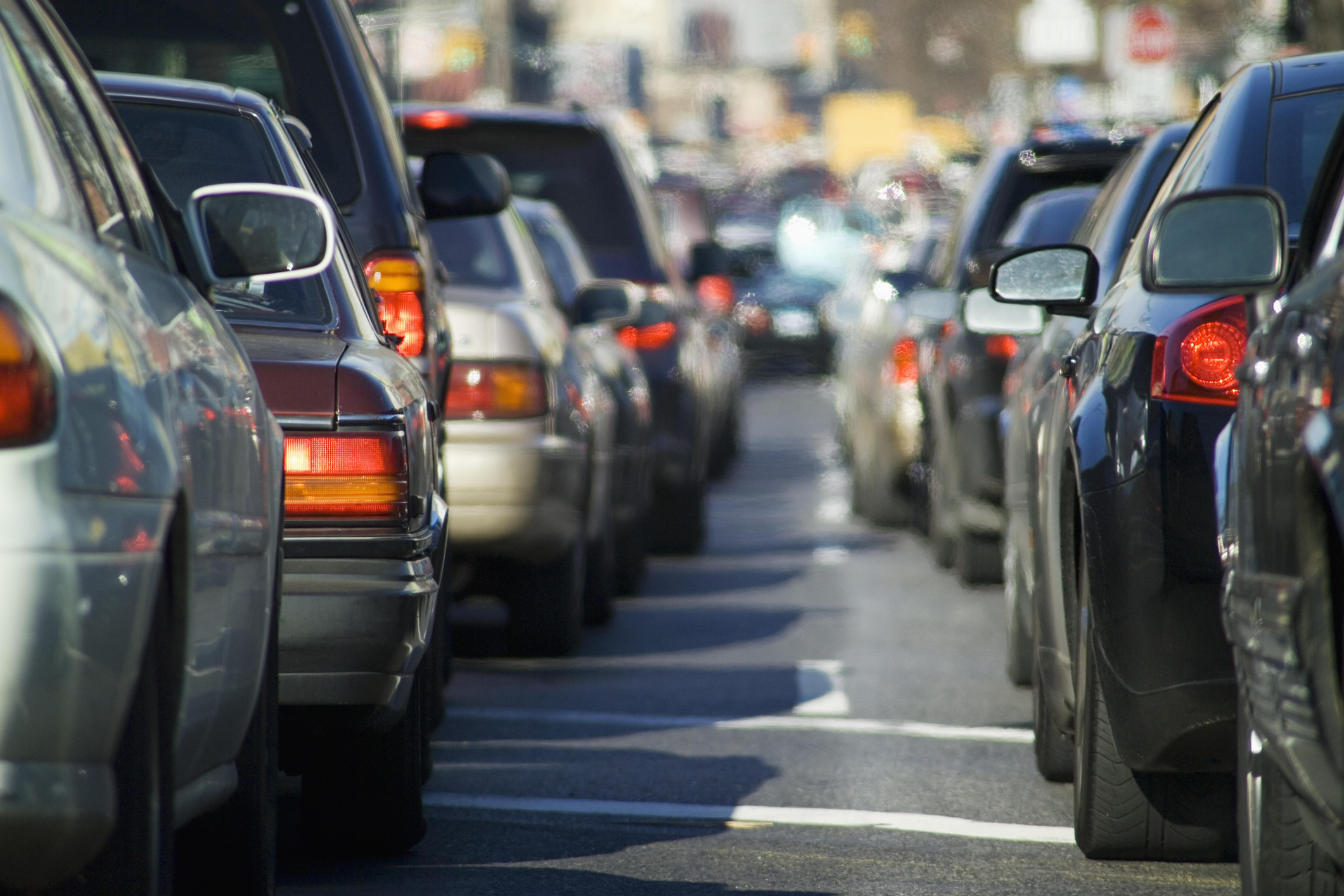How To Know If Your Car Is Recalled — And What To Do About It
Millions of vehicles are recalled every year, but their drivers may not always know it.


Profit and prosper with the best of Kiplinger's advice on investing, taxes, retirement, personal finance and much more. Delivered daily. Enter your email in the box and click Sign Me Up.
You are now subscribed
Your newsletter sign-up was successful
Want to add more newsletters?

Delivered daily
Kiplinger Today
Profit and prosper with the best of Kiplinger's advice on investing, taxes, retirement, personal finance and much more delivered daily. Smart money moves start here.

Sent five days a week
Kiplinger A Step Ahead
Get practical help to make better financial decisions in your everyday life, from spending to savings on top deals.

Delivered daily
Kiplinger Closing Bell
Get today's biggest financial and investing headlines delivered to your inbox every day the U.S. stock market is open.

Sent twice a week
Kiplinger Adviser Intel
Financial pros across the country share best practices and fresh tactics to preserve and grow your wealth.

Delivered weekly
Kiplinger Tax Tips
Trim your federal and state tax bills with practical tax-planning and tax-cutting strategies.

Sent twice a week
Kiplinger Retirement Tips
Your twice-a-week guide to planning and enjoying a financially secure and richly rewarding retirement

Sent bimonthly.
Kiplinger Adviser Angle
Insights for advisers, wealth managers and other financial professionals.

Sent twice a week
Kiplinger Investing Weekly
Your twice-a-week roundup of promising stocks, funds, companies and industries you should consider, ones you should avoid, and why.

Sent weekly for six weeks
Kiplinger Invest for Retirement
Your step-by-step six-part series on how to invest for retirement, from devising a successful strategy to exactly which investments to choose.
Car recalls happen more often than you might expect. Some 27 million cars were recalled in 2024, according to BizzyCar, and 2025 is already kicking off with recalls to know about.
Whether it's a faulty airbag, a software bug or a mechanic flaw, recalls don’t happen until thousands of cars are already on the road, and one of them might be yours. If your car is part of a recall, the fix is usually easily manageable, but you have to know it's happening first.
Manufacturers are required to mail out notices to drivers whose cars have been affected, but that can happen weeks after the recall takes place. For example, the National Highway Traffic Safety Administration (NHTSA) issued a recall on Ford vehicles on December 20, 2024, but letters don't start going out to owners until January 13, 2025.
From just $107.88 $24.99 for Kiplinger Personal Finance
Become a smarter, better informed investor. Subscribe from just $107.88 $24.99, plus get up to 4 Special Issues

Sign up for Kiplinger’s Free Newsletters
Profit and prosper with the best of expert advice on investing, taxes, retirement, personal finance and more - straight to your e-mail.
Profit and prosper with the best of expert advice - straight to your e-mail.
That’s why it’s a good idea to periodically check to make sure your car is not part of a current recall.
Why do car recalls happen?
Car recalls have been on the rise recently. Data from the NHTSA show recalls going up particularly within the last decade. Part of the reason for all the recalls may be because car manufacturers have to use complex electronic parts in vehicles, which makes cars more likely to malfunction, ABC News reported.
Some recalls are for safety issues, like a recall of Kias for rollaway risk or of BMWs for fire risk. Others reasons for recalls sound slightly less alarming. Among the largest recalls last year was of Teslas, which were recalled over the font size on their instrument panels.
Who recalls cars?
Car recalls often come from two places. The automakers themselves will sometimes voluntarily issue recalls on their vehicles if they notice a defect.
Otherwise, the NHTSA, a government organization, will announce vehicle recalls if they believe a car doesn’t meet minimum safety standards.
How to know if your car is recalled
NHTSA has its own vehicle recall website that lists any announcements regarding car defects. To use it, you simply need to plug in your vehicle identification number (VIN). If you’re not sure where that number is on your car, you can plug in your license plate number or your vehicle’s make and model.
NHTSA also runs the SaferCar app, a mobile platform that automatically alerts you to any car recalls. Once you download the app on your phone, you can add different cars to your “garage,” and the app will keep tabs on recall efforts for those models.
Kelley Blue Book also has a recall portal that will require either a VIN, license plate number, or make and model.

Check these websites regularly. Sometimes, if a vehicle recall is recent, not all VINs will show up under the recall announcement. VINs are added regularly to the report, so you may still be entitled to get your vehicle fixed.
Car manufacturers will often have their own recall portals as well. If you know your car’s manufacturer, you can do a search for their recall websites and enter your VIN.
Car manufacturers will also send out notices in the mail to affected drivers. That letter will detail what defect is spurring the recall, a short-term solution for drivers (like “do not drive” or “engage the emergency brake”), and a detailed timeline of how the manufacturer will fix the problem.
What to do if your car gets recalled
If you find out your car is getting recalled through a notice in the mail, it will likely have instructions on how to proceed.
Usually, the automaker will instruct drivers to contact a nearby dealership that will make the necessary repairs to the car. Dealerships are required by law to make repairs in a timely manner, but the availability of parts, especially as manufacturing is bottlenecked, may slow down the process.
When a recall is issued, the automaker is required to fix the driver’s vehicle for free or reimburse the driver for any repairs they had to take on themselves. Even if you are the second or third owner of your car, you can get the defective part or mechanism fixed for free.
Related Content
Profit and prosper with the best of Kiplinger's advice on investing, taxes, retirement, personal finance and much more. Delivered daily. Enter your email in the box and click Sign Me Up.

Keerthi Vedantam is a reporter covering finance, tech and science. She previously covered biotech and health at Crunchbase News and enterprise technology at Business Insider.
-
 Quiz: Do You Know How to Avoid the "Medigap Trap?"
Quiz: Do You Know How to Avoid the "Medigap Trap?"Quiz Test your basic knowledge of the "Medigap Trap" in our quick quiz.
-
 5 Top Tax-Efficient Mutual Funds for Smarter Investing
5 Top Tax-Efficient Mutual Funds for Smarter InvestingMutual funds are many things, but "tax-friendly" usually isn't one of them. These are the exceptions.
-
 AI Sparks Existential Crisis for Software Stocks
AI Sparks Existential Crisis for Software StocksThe Kiplinger Letter Fears that SaaS subscription software could be rendered obsolete by artificial intelligence make investors jittery.
-
 One of the Most Powerful Wealth-Building Moves a Woman Can Make: A Midcareer Pivot
One of the Most Powerful Wealth-Building Moves a Woman Can Make: A Midcareer PivotIf it feels like you can't sustain what you're doing for the next 20 years, it's time for an honest look at what's draining you and what energizes you.
-
 I'm a Wealth Adviser Obsessed With Mahjong: Here Are 8 Ways It Can Teach Us How to Manage Our Money
I'm a Wealth Adviser Obsessed With Mahjong: Here Are 8 Ways It Can Teach Us How to Manage Our MoneyThis increasingly popular Chinese game can teach us not only how to help manage our money but also how important it is to connect with other people.
-
 Looking for a Financial Book That Won't Put Your Young Adult to Sleep? This One Makes 'Cents'
Looking for a Financial Book That Won't Put Your Young Adult to Sleep? This One Makes 'Cents'"Wealth Your Way" by Cosmo DeStefano offers a highly accessible guide for young adults and their parents on building wealth through simple, consistent habits.
-
 My Spouse and I Are Saving Money for a Down Payment on a House. Which Savings Account is the Best Way to Reach Our Goal?
My Spouse and I Are Saving Money for a Down Payment on a House. Which Savings Account is the Best Way to Reach Our Goal?Learn how timing matters when it comes to choosing the right account.
-
 We're 78 and Want to Use Our 2026 RMD to Treat Our Kids and Grandkids to a Vacation. How Should We Approach This?
We're 78 and Want to Use Our 2026 RMD to Treat Our Kids and Grandkids to a Vacation. How Should We Approach This?An extended family vacation can be a fun and bonding experience if planned well. Here are tips from travel experts.
-
 My First $1 Million: Retired From Real Estate, 75, San Francisco
My First $1 Million: Retired From Real Estate, 75, San FranciscoEver wonder how someone who's made a million dollars or more did it? Kiplinger's My First $1 Million series uncovers the answers.
-
 To Love, Honor and Make Financial Decisions as Equal Partners
To Love, Honor and Make Financial Decisions as Equal PartnersEnsuring both partners are engaged in financial decisions isn't just about fairness — it's a risk-management strategy that protects against costly crises.
-
 Top 5 Career Lessons From the 2026 Winter Olympics (So Far)
Top 5 Career Lessons From the 2026 Winter Olympics (So Far)Five lessons to learn from the 2026 Winter Olympics for your career and finances.